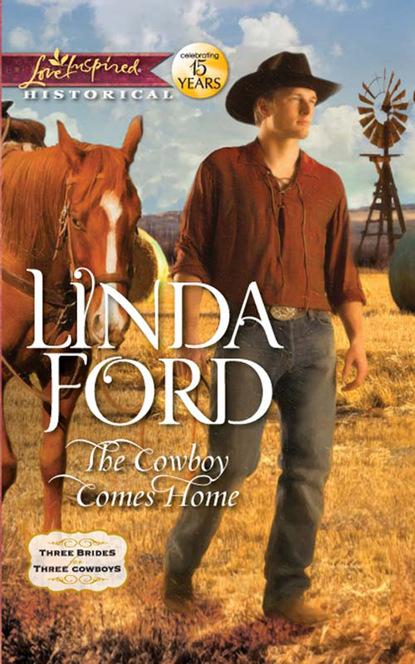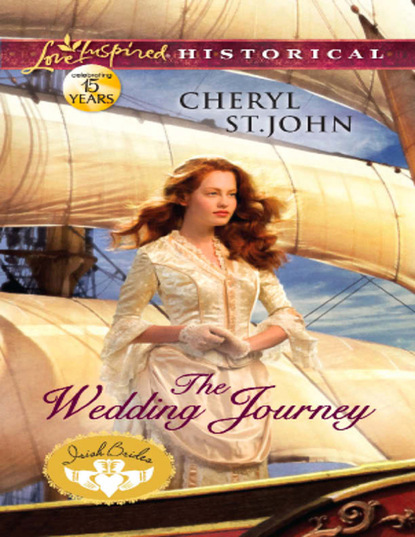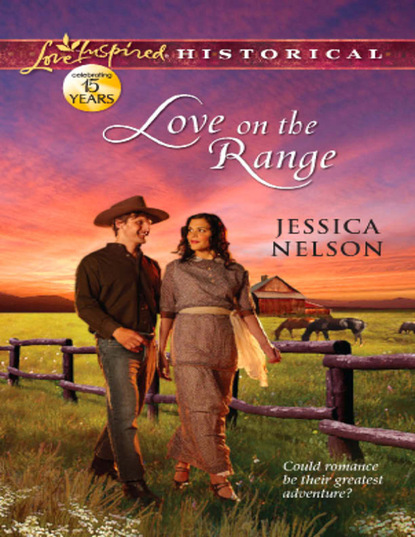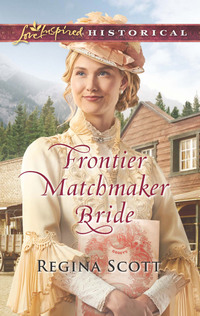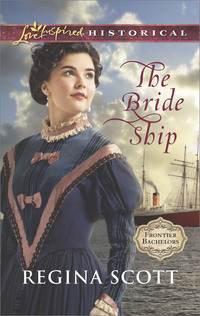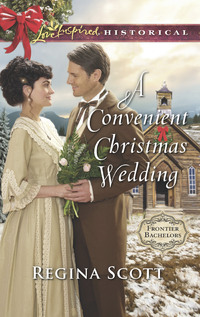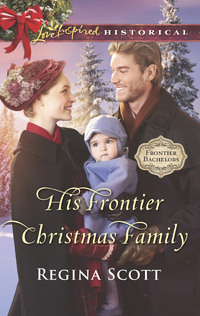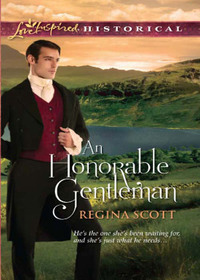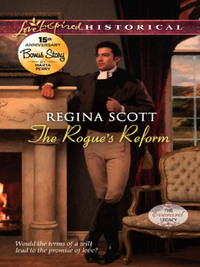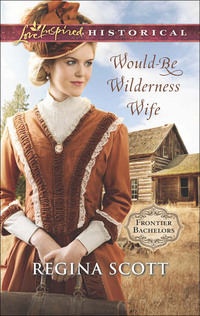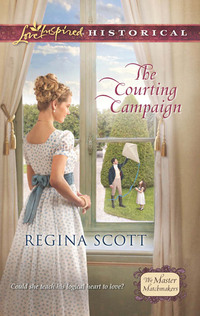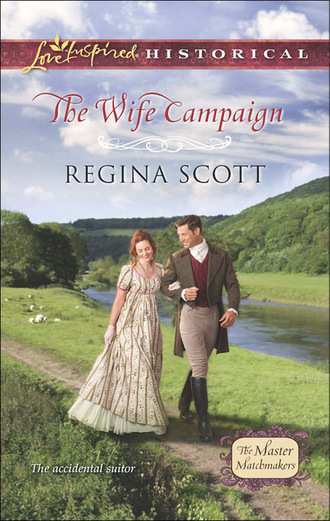
Полная версия
The Wife Campaign
“No, Mr. Hennessy, you were doing your duty, as usual,” Whit assured him, heading for the stairs. “It was Mr. Quimby who was mistaken, greatly mistaken.” And he would tell the fellow that this very instant. He started up the stairs, and the footmen and maids scattered before him like leaves in a driving wind.
On the chamber story, Whit spun around the newel and into the room at the top of the stairs. He’d been given this bedchamber as a boy, and though it was the smallest of the seven, he still found it the most comfortable. He stopped in the center, the great bed before him, the hearth at his back, and thundered, “Quimby!”
His valet entered from the dressing room, a coat in either hand. As always, a pleasant smile sat on his lean face. Though his straw-colored hair tended to stick out in odd directions, his clothes, and the ones he kept for Whit, were impeccable.
“Good,” he said. “You’re back. Which do you prefer for dinner, the blue superfine or the black wool with the velvet lapels?”
“What I prefer,” Whit gritted out, “is to know why I have guests.”
“Ah.” Quimby lowered the coats but never so much that they touched the polished wood floor. “I believe each of the three invitations read that you are desirous to put an end to your bachelor state and would like to determine whether you and the lady suit.”
Feeling as if every bone in his body had instantly shattered, Whit sank onto the end of the bed. “You didn’t.”
“I did.” With total disregard for the severity of his crime or his master’s distress, Quimby draped the coats over the chair near the hearth. “You aren’t getting any younger, my lad. And we none of us are looking forward to serving your cousin should you shuffle off this mortal coil prematurely.” He glanced at Whit and frowned. “You look rather pale. May I get you a glass of water? Perhaps some tea?”
“You can get these people out of my house,” Whit said, gathering himself and rising. “Or, failing that, find me other accommodations.”
Quimby tsked. “Now, then, how would that look? You have three lovely ladies here to learn more about. I chose them with great care. I thought you rather liked Lady Amelia Jacoby.”
It was true that the statuesque blonde had caught Whit’s eye at a recent ball, but he’d never had any intentions of moving beyond admiration. “If I liked her,” Whit said, advancing toward his valet, “I was fully capable of pursuing her without your interference.”
“Of course,” Quimby agreed. He came around behind Whit and tugged at the shoulders of his tweed coat to remove it. “Yet you did not pursue her. I also invited Miss Henrietta Stokely-Trent. You did mention you thought she had a fine grasp of politics.”
He’d had several interesting conversations with the determined bluestocking last Season. “She’s brilliant. But perhaps I want more in a wife.”
“And perhaps you’ve been too preoccupied to realize what you want,” Quimby countered, taking the coat to the dressing room.
“Rather say occupied,” Whit corrected him, unbuttoning the waistcoat himself. “Parliament, estate business, the orphan asylum...”
“The sailor’s home, the new organ for the church,” Quimby added, returning. “I am well aware of the list, my lord. You are renowned for solving other people’s problems. That’s why I took the liberty of solving this problem for you.” He unwound the cravat from Whit’s throat in one fluid motion.
“Dash it all, Quimby, it wasn’t a problem!” Whit pulled the soiled shirt over his head. “I’d have gotten around to marrying eventually.”
“Of course.” Quimby took the shirt off to the dressing room for cleaning.
Whit shook his head. “And why invite Miss Hollingsford? I don’t even recall meeting her.”
Quimby returned with a fresh shirt and drew it over Whit’s head. “I don’t believe you have met, sir. I simply liked her. I thought you would, too.”
He had liked her immediately. All that fire and determination demanded respect, at the least. That wasn’t the issue.
Whit closed his eyes and puffed out a sigh as his valet slipped the gold-shot evening waistcoat up his arms. “Have you any inkling of what you’ve done?”
He opened his eyes to find Quimby brushing a stray hair off the shoulder. “I’ve brought you three beautiful women,” he replied, completely unrepentant. “All you need do is choose.”
Whit stepped back from him. “And if I don’t?”
“Then I fear the next batch will be less satisfactory.”
Whit drew himself up. “I should sack you.”
“Very likely,” Quimby agreed. “If that is your choice, please do it now. I understand Sir Nicholas Rotherford is seeking a valet, and as he recently married, I should have less concern for my future with him.”
Whit shook his head again. If Quimby had been anyone else, Whit would have had no trouble firing him for such an infraction. But he’d known Quimby since they were boys. The two had been good friends at Eton, where Peter Quimby, the orphaned son of a distinguished military man, had been taken in on charity. When Whit became an orphan, and the new Earl of Danning at fifteen, he’d offered his friend a position as steward.
“Who’s going to take orders from a fifteen-year-old?” Quimby had pointed out. “Make me your valet. They get to go everywhere their masters do. We’ll have some fun, count on it.”
At times over the past fifteen years, Whit thought Quimby was the only reason Whit had had some fun, even when duty dogged his steps. He couldn’t see sacking his friend now.
“Rotherford can find another valet,” Whit told him.
Quimby smiled as he reached for the coats.
“But don’t take that to mean I approve of this business,” Whit insisted. “I’ll do my best to clean up the mess you’ve made. I will be polite to our guests but expect nothing more. You can campaign all you like, Quimby, but you cannot make a fellow choose a wife.”
“As you say, my lord,” Quimby agreed, though Whit somehow felt he was disagreeing. “Now, which will you have tonight, the black coat or the blue?”
“Does it matter?” Whit asked as his valet held out the two coats once more. “By the time this fortnight is over, I’m the one most likely to be both black and blue, from trying to explain to three women that I don’t intend to propose.”
Chapter Two
Ruby was equally certain she would do no more than survive the fortnight as she and her maid were escorted to a lovely room overlooking the river. She’d tried to convince her father to return to London, but he’d refused, having Davis turn the coach once more and take them back to the Lodge, a quaint stone building tucked between the river and the rising hills.
Her father seemed even more certain than before that Lord Danning was part of some plan God had for her. After all, the earl had been waiting for her when she’d jumped from the coach. She didn’t believe God worked that way. God’s plans involved momentous things—war and peace, sun and rain and stars falling. Surely He wouldn’t intervene in the life of one Ruby Hollingsford.
Besides, she could take care of herself. She had her future all planned—good works, good books, a drive through the park and the opera on occasion. She didn’t need the unreliable companionship of a husband.
Hadn’t she managed in London alone when she’d been a child and her father had worked as a mudlark, scouring the banks of the Thames for treasure? After their wealth was established, hadn’t she endured the four years of tutelage at the Barnsley School for Young Ladies, where half the students shunned her because of her past? Wasn’t she spearheading the creation of a school in poverty-stricken Wapping? Hadn’t she survived when the one man she thought she might love turned out to be a scoundrel? The Earl of Danning would find her made of stronger stuff than the dewy-eyed Society damsels he probably courted.
But it did seem odd that, when she exited her room to try to persuade her father once more, the very first person she saw was the earl standing by the stairs.
He’d changed into evening clothes. Had he been dressed like that when they’d met, she would have had no doubt he was a member of the aristocracy. The black coat and trousers emphasized his height; the tailoring called attention to his shoulders. Though he did not seem to know he was being observed, he held himself poised, as if posing for a portrait.
She hadn’t noticed him on the riverbank at first, she’d been so angry at her father’s betrayal. This time she didn’t think he saw her, and for a similar reason. His hands were clasped behind his back in tight fists, and he was gazing down the stairs as if he simply couldn’t force himself to descend.
She shared the feeling. But why was he so loath to start the house party he’d instigated? And why had he organized the house party at all? He’d said he only wanted to fish. She’d seen the other carriages being unloaded at the door. More people were attending this party than just her and her father. How would having a house full of people allow him time to fish? How would fishing allow him time to court a lady? Was he as big a liar as the other aristocrats she’d had the misfortune to know?
She considered tiptoeing behind him for the room her father had been given across the corridor, but she thought Lord Danning would probably notice. She wasn’t exactly inconspicuous. She disdained the white muslin gowns young ladies were expected to wear because they made her dark red hair look like some sort of fire beacon. Instead, her evening dress was a smoky gray, with long sleeves wrapped in white lace and a band of the same lace around her neckline and hem. The gown tended to rustle as she moved. So he would either see her or hear her, and she’d be stuck making polite conversation anyway.
So she decided to start the conversation herself. She walked up to him and nodded in greeting. “It appears I was mistaken, my lord. We meet again.”
He pulled himself out of his reverie and bowed. “Miss Hollingsford. A pleasure to see you again, particularly as you are not a dead body.”
Ruby couldn’t help chuckling. “I suppose I deserved that after my remark by the bridge. You may have noticed that I have a temper. I also tend to speak my mind.”
“Really?” he said, though she could see the twinkle in those purple-blue eyes.
“Surprising, isn’t it? And given that tendency, allow me to make something clear.” She leaned forward and met him gaze for gaze. “I meant what I said at the river. I’m not here for a proposal.”
“Excellent,” he replied, unflinching. “Neither am I.”
Ruby frowned as she leaned back, but her father came out of his room just then, and the earl excused himself to start down the stairs ahead of them.
“Ah, getting to know the fellow already,” her father said, rubbing his white-gloved hands together. Now that he was dressed for the evening, anyone looking at him, Ruby thought, would see a prosperous gentleman. His blue coat and knee breeches were of an older style but of fine material, his linen was a dazzling white and a sapphire winked from the fold of his cravat. They wouldn’t know where he’d come from, how hard he’d worked to rise to the enviable position of jeweler to the ton.
The earl must know. An aristocrat would certainly want to be sure of the family he was considering uniting with his own. Yet why would he invite the daughter of a jeweler to stay? Was he pockets to let, like the viscount her father had offered up?
Either way, Ruby could not encourage her father’s tendency to matchmaking. “I have no reason to get to know our host further,” she told him. “I have little interest in the Earl of Danning.”
He grinned. “A little is at least a start. Come on, my girl. Let’s show them how it’s done.”
With a shake of her head, Ruby accepted his arm, and they descended the stairs.
So her father would not change his mind. She considered appealing to the earl about her enforced stay at his lodge instead. If he was sincere in not wanting to propose, perhaps she could convince him to rescind his invitation. Whatever his reasons for inviting her, surely now that they’d met, he’d seen that they would not suit. She was far from being the sort of exquisite beauty whose genteel manners and biddable nature might make her low birth forgivable. They could have little in common, nothing on which to base a true marriage. But when she and her father entered the withdrawing room, she found the earl missing. Instead, others were waiting, five in all, arranged in two groupings.
Indeed, two groupings was about all the manly space would afford. The withdrawing room at Fern Lodge seemed designed to dominate. The warm wood paneling was set in precise squares. Each painting celebrated capture, from grouse to fish to bear. The polished brass wall sconces ended in spikes like spears. The stags in the relief over the massive gray stone fireplace at one end of the room looked ready to leap from the wall and dash away to safety.
So did at least one of the women in the room. Two had claimed the sofa before the fire, and by the similarities in the lines of the patrician faces, Ruby guessed that they were mother and daughter. The daughter had hair the color of platinum, perfectly coiled in a bun at the nape of her neck, and a figure just as perfect, as if carved from marble. The drape of her silk gown said it cost as much as one of Ruby’s father’s Blue John ornaments. Every angle of nose and cheek shouted aristocrat—just as every facet of her expression showed her wish to flee.
The other group, positioned on chairs by the glass-paned doors overlooking the veranda, appeared to comprise a mother and father in staid but costly evening wear. The young woman standing beside them was likely their daughter, though she didn’t resemble them with her dark hair worn back from an alabaster face. She had an enviable figure in a lustring gown the color of amethysts. Her movements were sharp and precise, as if each was calculated for effect.
Why were they here? If the earl truly meant to propose to Ruby as the invitation implied, could these be his relatives or close friends? But if they were family, surely they’d stand closer, perhaps reminisce? If friends, why were they mostly women?
“Evening, all!” her father announced, strolling into the room and pulling Ruby with him. “Let’s call the ceiling our host and get to know each other better.”
As Ruby dropped his arm in embarrassment, he went to the ladies on the sofa and stuck out his hand. “Mortimer Hollingsford and my daughter, Ruby.”
The mother eyed his hand as if he had thrust out a dagger. “Lady Wesworth,” she said without physically acknowledging his gesture. “And my daughter Lady Amelia.”
Wesworth? Ruby knew the name and fervently wished her father wouldn’t reveal the connection. Somehow she didn’t think the Marchioness of Wesworth would want the rest of the guests to know that her husband had recently exchanged the diamonds at her throat with paste copies.
But her father was too much the businessman to ever betray a client. “Your ladyship,” he said with a bow. “News of your daughter’s beauty and charm has spread far, but I see that the gossips neglected to mention how much she takes after you.”
The marchioness visibly thawed, her double chins relaxing, her impressive chest settling. “I’m afraid I haven’t heard any stories of you, Mr. Hollingsford,” she said in a voice that managed to be polished and commanding at the same time. “Are you related to Lord Danning?”
If she asked the question, she couldn’t be related either. Ruby wandered closer to hear the conversation. The matter apparently interested the others, for they rose and joined the group by the sofa, as well.
“Not me,” her father promised. “Not at the moment, leastwise.” He winked broadly at Ruby.
The other man held out his hand to her father. “Winston Stokely-Trent,” he intoned as if the name should have meaning for all present. “My wife and my daughter. Did I understand you to say you hope to soon be related to the Earl of Danning?”
“You did not,” Ruby said, threading her arm through her father’s and giving it a squeeze in warning.
“Certainly not,” Lady Wesworth said, nose in the air. “I understand he has set his sights elsewhere.”
Her daughter blushed.
Mrs. Stokely-Trent smiled at her own daughter. “So I understand, as well.”
Ruby glanced from Lady Amelia, who had bowed her head in humility, to Miss Stokely-Trent, who had raised hers in pride. Had the earl really implied marriage in his invitations to the two of them as well as Ruby? How arrogant and how like an aristocrat!
Well, she wouldn’t stand for it. As soon as Ruby could, she drew her father away from the others, leading him to the doors overlooking the veranda. Twilight was falling, and a mist seemed to be rising from the river. But she could not afford to appreciate the view.
“This is a farce,” she whispered, mindful of the other guests. “Let’s make our regrets and go.”
“Now, then, you can’t be cowed by these girls,” her father insisted with a glance at the other two candidates for the earl’s hand. “Lady Amelia is a stunner, but she obviously lacks backbone. And I’ve heard Miss Henrietta Stokely-Trent is too clever for her own good. No, my girl, I’d cheer for you any day.”
“Then you’d be disappointed,” Ruby said. “I’ll have no part in this business. You know how I feel about these nobs.”
“Once a nob, always a snob,” her father agreed. “But they’re not all so bad.”
“Most of the ones I’ve met have been,” Ruby countered.
Just then another man strolled into the room. Like their host the earl, he was tall, blond and handsome. But his features were softer, as if he were the resin mold rather than the finished statue. His clothes were of cheaper material, lesser cut. Ruby recognized the signs immediately. So did her father.
“The poor relation,” he murmured as the man came forward.
Poor relation or fortune hunter, Ruby amended silently as he fawned over Lady Amelia and Henrietta Stokely-Trent. The others appeared to recognize the signs, as well. Lady Amelia’s shy smile was effectively countered by her mother’s curt stare. Miss Stokely-Trent quizzed him unmercifully. Ruby told herself not to feel sorry for him.
When at last he made his way to their sides, his charming smile was a little frayed.
“Hollingsford,” he said with a nod.
“Mr. Calder, good to see you again,” her father replied. “You may remember my daughter, Ruby.”
Why would he remember Ruby? She certainly didn’t remember him, though apparently he knew her father. Before Ruby could question either of them, the other man bowed to her. “A pleasure, Miss Hollingsford.”
Ruby inclined her head as he straightened. “And how do you know my father, Mr. Calder?”
He paled, but her father clapped him on one broad shoulder. “Business,” her father said and by his refusal to say more, Ruby knew that Mr. Calder had likely had to sell some jewel of great personal value to pay his bills.
Mr. Calder managed a smile. “I am in your father’s debt, and I will be forever in my cousin’s debt for inviting me to bask in the glory of three such lovely creatures.”
He said it as if he knew he had no hope of attracting any of them. Ruby couldn’t help trying to raise his spirits. “Oh, did your cousin catch so many fish today?” she teased.
He chuckled. “Ah, a wit, as well. I can see I shall have to be on my toes. But tell me, how do you know my cousin?”
Ruby glanced at her father, brow raised.
“Never met him until today,” her father proclaimed. “But he must have seen my Ruby at some social function else he wouldn’t have invited her.”
Ruby wasn’t convinced. She’d never seen the earl or his cousin at any event. But then, she ran in different circles. Her literary club comprised women who had either inherited money from trade or were independent, like her friend Miss Eugenia Welch. When she went out of an evening, it was most often with her father and his acquaintances.
Still, because she’d attended the prestigious Barnsley School for Young Ladies in Somerset, she knew any number of women currently on the ton. Unfortunately, some of her former classmates still snubbed her. They certainly had never mentioned her to the earl.
As if summoned by her thoughts, Lord Danning appeared in the doorway. His golden hair mirrored the candlelight. The diamond stickpin in his cravat sparkled. His smile of welcome included everyone in the room as he glanced about. She found herself wondering when the portrait painter would arrive.
Then his gaze met hers, and his smile deepened.
Ruby felt her face heating and raised her chin. Oh, no. He would not find her as easy to catch as his fish.
“Ladies, gentlemen,” he said, strolling into the room, “welcome to Fern Lodge. You were kind to accept the invitation. Join me for dinner, and we can discuss plans for the fortnight.” He held out his arm. “Lady Wesworth, if I may?”
Funny. Ruby wouldn’t have thought the earl such a stickler for propriety, not having met him in rough clothing on the riverbank. By the looks that crossed Lady Amelia’s and Henrietta Stokely-Trent’s faces, they’d also expected him to offer for someone other than the highest-ranking woman in the room. Had he meant what he’d said earlier, when he’d claimed he was truly not seeking a wife? If so, perhaps it wasn’t so much good manners as self-preservation that made him escort Lady Wesworth rather than any of the young ladies he’d invited to court. But if he was not seeking a bride, why invite them all in the first place? Just to amuse himself with their reactions?
The other pairings were nearly as interesting. Mr. Calder eyed Ruby, but she anchored herself to her father, and he excused himself to offer Lady Amelia his arm. Henrietta Stokely-Trent looked even more annoyed because she had to walk with her father and mother. The posturing for position at the table was nearly as laughable, with parents and offspring colliding and glowering at each other. Ruby wasn’t sure whether to be concerned or amused when Henrietta Stokely-Trent seated herself next to Ruby near the end of the table.
Of course, none of them had much choice. The Lodge, while decorated in sumptuous materials, was clearly meant for a retreat, not to host so many people. The mahogany table had been extended its full length to accommodate them all, and the high back on the earl’s chair said it belonged elsewhere in the house. Still the polished wood of the table mirrored the shine of the pristine china plates, silver service and porcelain platters of the dozen dishes the chef had produced for their delight.
One nice thing about Ruby’s vantage point near the end of the table, however, was that it gave her a good view of the earl. He seemed pleasant, answering Mr. Stokely-Trent’s imperious question about a bill coming up in Parliament as easily as Lady Wesworth’s lament that there were no pickled beets to accompany the meal.
Indeed, he chatted easily with Lady Amelia and her mother on either side, making sure they were given choice portions of the salmon and duck, smiling at their sallies. But she saw no spark, no furtive glance, no touch of hands as he passed the platters, to indicate that he had any feelings for the lady.
“An interesting gentleman,” Henrietta Stokely-Trent said as if she’d noticed the direction of Ruby’s gaze.
Ruby offered her a smile. “Have you known him long, then?”
“We’ve met several times this Season.” She lifted a forkful of the duck. “He’s reasonably intelligent, well read, with opinions of his own on any number of topics. Where did you meet?”
“On the riverbank this afternoon,” Ruby supplied, “on my way to the Lodge. But he sent the invitation earlier.”
Miss Stokely-Trent frowned. “Why would he invite you if you’d never met? Is he a friend of your father’s?”
“Not that I’m aware,” Ruby replied, looking across the table to where her father was regaling Mrs. Stokely-Trent with one of his tales. By the way the lady’s mouth was pursed in an O, Ruby would likely need to apologize at some point.
“Surely I can be of assistance, Miss Stokely-Trent,” said Mr. Calder on her other side, smiling winsomely. “Perhaps some more of the duck?” Henrietta turned her attention to him.


